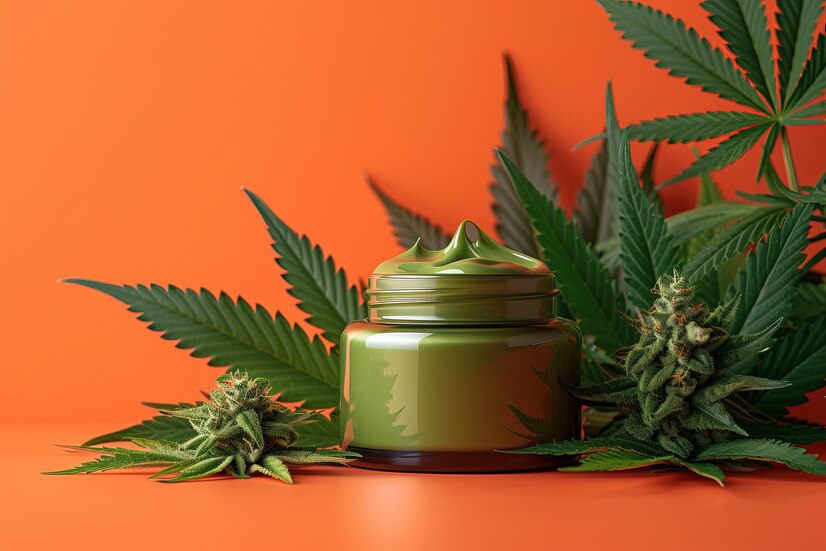Table of contents
As the CBD industry continues to grow, so does the competition. Many companies are turning to advertising and digital marketing to build brand awareness, grow sales, and connect with health-conscious consumers. However, CBD advertising and marketing come with a unique set of legal hurdles that businesses must navigate carefully to avoid fines, platform bans, or even legal action.
Whether you’re a new CBD startup or a well-established brand, understanding the legal restrictions surrounding CBD advertising and marketing is crucial to protecting your business and building a compliant strategy.
Why CBD Advertising Is So Heavily Regulated

CBD (cannabidiol) may be legal under the 2018 Farm Bill when derived from hemp with less than 0.3% THC, but it is still under the regulatory microscope—especially from the U.S. Food and Drug Administration (FDA) and the Federal Trade Commission (FTC). These agencies have issued warning letters to companies making unproven health claims and misleading product descriptions.
At the same time, major platforms like Google, Facebook, Instagram, and TikTok impose their own advertising restrictions on CBD products—even legal ones. These combined regulations make CBD advertising and marketing a complex landscape for any business.
Key Legal Guidelines for CBD Advertising and Marketing

To stay on the right side of the law (and the platforms), follow these essential guidelines:
1. No Health or Medical Claims
CBD companies are prohibited from stating or implying that CBD can treat, cure, prevent, or diagnose any disease or health condition unless approved by the FDA. Avoid phrases like:
- “CBD cures anxiety”
- “Treats chronic pain”
- “Eliminates cancer symptoms”
Instead, use general wellness language like “promotes calm” or “supports relaxation.”
2. Comply With FTC Truth-in-Advertising Rules
All claims made in advertisements—whether online, on packaging, or via influencers—must be:
- Truthful and not misleading
- Backed by scientific evidence
- Clearly disclosed as sponsored, if applicable
FTC enforcement actions have targeted companies for false testimonials and unsubstantiated claims in CBD ads.
3. Understand Platform-Specific Policies
Most major platforms still prohibit paid advertising of ingestible CBD, but rules vary:
- Google Ads: Allows topical CBD ads in limited regions, with pre-certification.
- Facebook & Instagram: Prohibits ads for ingestible CBD; some leniency for hemp products.
- TikTok: Prohibits all CBD-related content in advertising.
Some companies use workarounds like promoting “hemp extract” or “wellness drops” instead of “CBD oil,” though this still carries risk.
4. Follow Email and SMS Marketing Rules
Email and SMS campaigns are less restricted but must still comply with:
- CAN-SPAM Act
- TCPA regulations
- Avoiding false claims and properly identifying sender and unsubscribe options.
Make sure your messaging doesn’t promise health benefits and always include a legal disclaimer.
5. State-Specific Advertising Restrictions
Some U.S. states have stricter rules than others. For example:
- California prohibits CBD in food and beverage advertising.
- Texas mandates specific disclaimers on CBD promotions.
- New York requires clear differentiation between CBD and marijuana products.
Always research local laws before launching a regional campaign.
Tips for Compliant and Effective CBD Marketing

- Use educational content marketing (blogs, SEO, infographics) to drive organic traffic.
- Invest in influencer marketing—but ensure all sponsored content is disclosed and compliant.
- Highlight third-party lab testing to build trust and transparency.
- Focus on storytelling, such as user experiences or brand mission, without making medical claims.
- Use email marketing and affiliate partnerships as alternative channels to paid ads.
FAQs About CBD Advertising and Marketing
Partially. Google permits limited advertising for topical CBD with certification, but Facebook generally restricts CBD ads. You can advertise hemp products or drive traffic using SEO and email.
Avoid terms like “treats,” “cures,” “heals,” “relieves medical conditions,” or any reference to specific diseases or health outcomes. Stick to general wellness language.
Yes. It’s recommended to include disclaimers like “These statements have not been evaluated by the FDA” and “This product is not intended to diagnose, treat, cure, or prevent any disease.”
Yes, but the content must be truthful, and FTC disclosure guidelines must be followed. Influencers cannot make unapproved health claims about your product.
Use content marketing, SEO-optimized blogs, influencer partnerships, affiliate programs, podcasts, and email marketing to build brand awareness without breaking advertising rules.
Final Thoughts
CBD businesses face a delicate balancing act—growing their brand while adhering to ever-evolving legal and platform rules. Staying compliant with CBD advertising and marketing laws is not only a legal necessity but also a powerful way to build trust with your audience.
As regulations shift, successful CBD marketers will be those who stay informed, remain transparent, and find innovative ways to connect with customers—without relying on health claims or restricted ad platforms.
If you’re in the CBD space, working with legal experts and ethical marketers is essential to ensure your campaigns are both effective and compliant.





